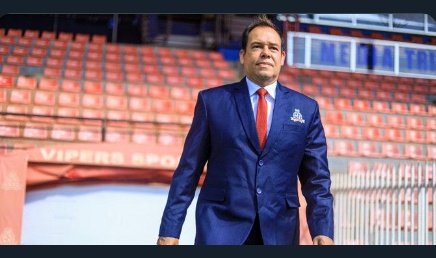Leonardo Martins Neiva, the outgoing head coach of Gor Mahia, has spoken out about the circumstances surrounding his abrupt exit from the club, citing club politics and security concerns as the primary reasons.
In a candid statement, Neiva alleged that fan attacks and internal tensions were premeditated, leading to his decision to leave.
Neiva, who joined Gor Mahia amid high expectations, announced his departure on November 13th. While the club cited a contractual clause for the termination, the Brazilian tactician revealed deeper reasons behind his decision.
| ANNOUNCEMENT
We hereby announce end of engagement with coach Leo Neiva; we truly thank him for his services and appreciate the times he spent at the club.
All the best in your endeavour coach Leo.#Sirkal | #GorFansClub pic.twitter.com/8CBQoYSwnD
— GOR MAHIA FC (@OfficialGMFC) November 13, 2024
ALSO READ:
In a social media post, Neiva explained:
“I am leaving the club mainly because of my safety and physical integrity. Political issues, election year, and other factors interfered with our daily lives. It’s 2024, and unfortunately, this still happens in football.”
The coach expressed gratitude to Gor Mahia chairman Ambrose Rachier and others who supported him during his tenure but highlighted the volatile environment as untenable.
Neiva’s troubles began after a 2-1 defeat to Nairobi City Stars on October 28th, Gor Mahia’s first loss of the season. Following the game, disgruntled fans confronted Neiva and the players, demanding accountability for the team’s performance.
The situation escalated during a 2-2 draw with Murang’a Seal on November 2nd, where Neiva was reportedly attacked by fans. The match required police intervention to ensure the coach’s safety. Matters worsened after a 2-0 defeat to Bandari on November 6th, where fans hurled objects at Neiva, calling for his resignation.
In an interview, Neiva described the incidents as politically motivated:
“It was all politics… those who attacked me knew exactly what they wanted. It’s a shame that such things happen in modern football.”
During his brief tenure, Neiva led Gor Mahia in six Premier League games, achieving two wins, two draws, and two defeats. Additionally, the team progressed to the second round of the CAF Champions League, where they were eliminated by Egyptian giants Al Ahly.
Despite these results, tensions within the club and among fans overshadowed Neiva’s efforts. His claim of politically driven attacks highlights the underlying challenges within the club’s structure.
Political Undertones in Gor Mahia
The coach suggested that internal politics at Gor Mahia played a significant role in his departure. While acknowledging that fan dissatisfaction is not uncommon in football, Neiva emphasized that the hostility directed at him felt orchestrated.
“Those who attacked me were not acting randomly; it was premeditated. I believe only 10 to 15 people were directly involved, but they had a clear target.”
While some reports speculated that an assistant coach may have been involved in the unrest, Neiva dismissed such claims, stating, “I don’t think so.”
A Tarnished Tenure
Neiva’s departure marks a tumultuous chapter for Gor Mahia. Despite flashes of promise, including qualification for the CAF Champions League second round, his time at the club was marred by off-pitch issues.
When asked about the nature of his departure, Neiva maintained that it was amicable but noted he had no control over the situation.
“Maybe it was because of the results, but this is football. I cannot control their decision.”
The departure of Leonardo Martins Neiva leaves Gor Mahia at a crossroads. With fan unrest and internal politics surfacing, the club faces significant challenges in maintaining stability and focusing on performance.
Chairman Ambrose Rachier now has the task of finding a coach who can navigate these complexities while delivering results. The situation also raises broader questions about the governance and culture within one of Kenya’s most successful football clubs.
Lessons for Modern Football
Neiva’s experience at Gor Mahia underscores the ongoing challenges in football management, particularly in regions where club politics and fan expectations often overshadow professional efforts. His departure is a reminder of the need for clubs to foster safe and supportive environments for coaches and players alike.




